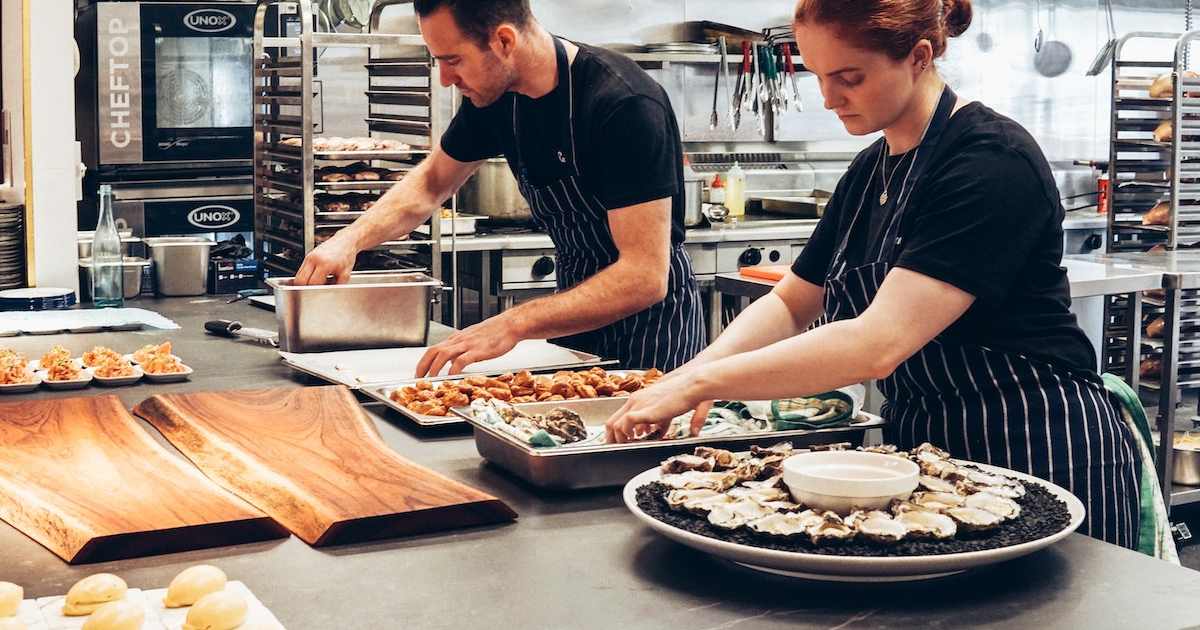
Launching a restaurant business can be expensive as it comes with costs such as rent, furniture, and kitchen and cooking equipment. An increasingly attractive option is pop-up restaurants which allow business owners to set up a physical store without some of the high costs associated with a traditional restaurant.
See also: A Guide To Launching A Bakery Business
What Is a Pop-Up Restaurant?
Similar to pop-up retail stores, pop-up restaurants are temporary trading spaces that enable business owners to escape the costs associated with long-term rentals while still being able to build a strong brand with a physical presence.
“Pop-up shops are an ideal way for entrepreneurs to sell and promote their business and by doing so, it allows them to gauge whether or not it will have long-term benefit in the market”, writes Mark Souris, managing director of Periscopic Masingita, in the article ‘Entrepreneurs Should Consider Pop-up Stores’.
An additional benefit of pop-up restaurants is that they offer a low-risk ground for business owners to try out their food on a new market.
Some examples of pop-up restaurants are food trucks trading from street corners and dedicated food truck stops or festivals. Pop-ups can also be set up in existing restaurants, abandoned businesses, building rooftops or shopping malls.
See also: A Guide to Launching a Food Truck Business
Industry Overview
Pop-up restaurants form part of the food and beverage sector which is a major contributor to the South African economy.
The restaurant industry, as a whole, was dealt a major blow by the COVID-19 pandemic in 2020, it is, however, currently experiencing a slow recovery. This dining movement has largely been entrepreneurial, according to an Eat Out report, driven by the industry’s need to innovate and survive. According to the same report, a positive development that’s taking place in South Africa is pop-up restaurants progressing “from being temporary, short-term endeavours to being permanent fixtures.”
Restaurant Laws and Regulations
The most important regulations that business owners in this sector have to comply with are health and safety permits and licences for the selling of liquor and tobacco, as well as zoning permits to operate in certain locations. Your restaurant will also need a certificate of acceptability to operate.
You can get more information on the licensing process and the various health and safety requirements for different kinds of enterprises by contacting your local municipality, which handles business licences. Business owners should also ensure they meet their tax obligations and register for company tax, VAT, PAYE, and Skills Development.
Access the full guide: Everything You Need to Know to Open a Restaurant in SA
Getting Started
The right location is crucial to the success of your restaurant. Make sure you know the physical location well, including what are the busy periods during the day and week, as well as the kind of clientele it attracts.
It’s equally important to find ways to stand out from other competing restaurants as the strength of your pop-up lies in being new and exciting, and being able to provide consumers with unique cuisine.
Set Up Costs
The startup costs for a pop-up restaurant are largely dependent on the type of restaurant you want to launch, including its size and location.
Some of the initial costs you can expect can include the following:
- Lease security deposit/loan down payment
- Business licences/permits
- Kitchen and cooking equipment
- Tables, furniture and tableware
- Signage and advertising
Must-have Tech Tools
A point-of-sale (POS) system can help you process card payments which is convenient for your diners. The technology can also help restaurant businesses to keep track of orders and inventory.





